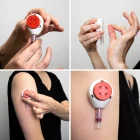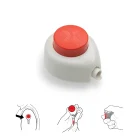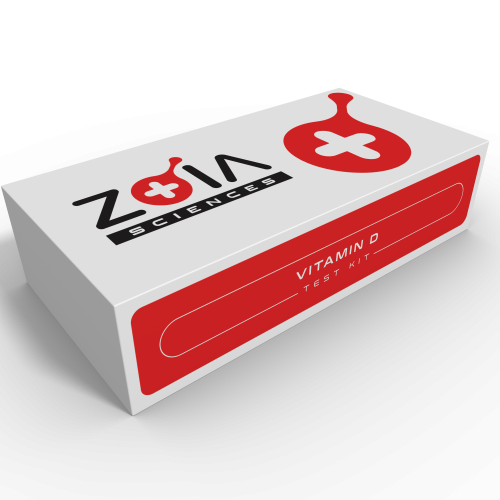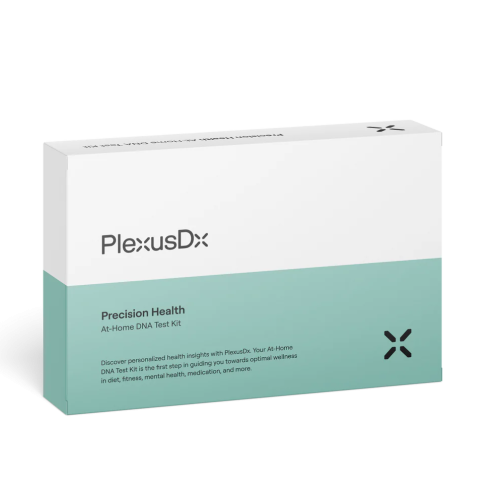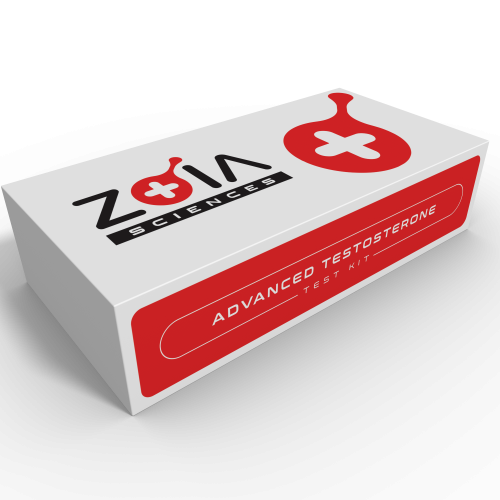Description
Improve Organ Health
Break Down Toxins, Fight Infections, and Increase Vitamin Absorption

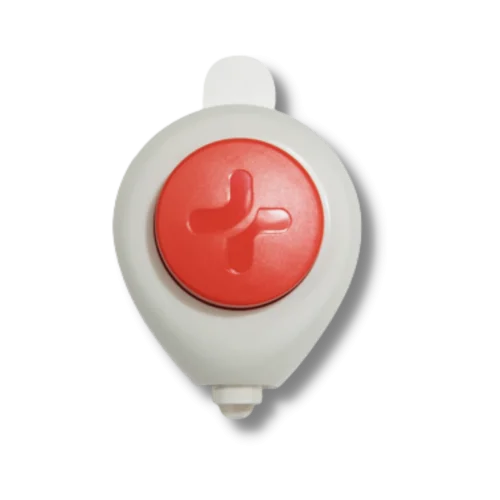
Blood Draw Made Easy
Tasso+ Blood Collection Device
The Tasso+, self-collection device makes it quick and easy to independently draw a small blood sample at home, without the stress or circulation issues of a fingertip draw.
Both of our TruAge test kits require a blood sample to analyze various age-related biomarkers. Each kit comes with all materials needed to complete an at-home, blood sample collection. Several lancets (a small finger-pricking tool) are included in each TruAge kit. However, patients who are squeamish or uncomfortable with that extraction option can purchase a Tasso+ device, which attaches to the bicep-facing, upper section of the arm for minimal patient involvement in the blood collection process.
What Does This Test Measure
Liver & Kidney Panel
Ensuring your liver and kidneys are in good health is vital because these organs help you break down your food and medications, remove waste and toxins, control glucose concentration, fight infections, among other important bodily functions.
Albumin, one of the most abundant proteins found in the bloodstream, is a protein made by the liver. It helps prevent fluid from exiting the body’s blood vessels. If you have abnormal levels of albumin, it could signal issues with your liver or kidneys or it could signal nutrient deficiency.
High Albumin – Higher than normal levels of albumin might indicate dehydration. Certain medications can cause abnormal levels of albumin.
Low Albumin – Low albumin, or Hypoalbuminemia, can be caused by multiple conditions such as: nephrotic syndrome, malnutrition, heart failure, hepatic cirrhosis. Most cases of low albumin are caused by sudden onset or chronic inflammatory responses.
Symptoms of low albumin:
- Fluid retention
- Appetite changes
- Thinning hair
- Rapid heartbeat
- Weakness or exhaustion
- Vomiting, diarrhea, nausea
GGT, Gamma-Glutamyl Transferase, is an enzyme found throughout the body but most commonly found in the liver. High levels of GGT in the blood could be an indicator of damage to the liver or bile ducts.
Symptoms of abnormal levels of GGT:
- Nausea or vomiting
- Abnormal pain or swelling
- Jaundice
- Weakness or fatigue
BUN, or Blood Urea Nitrogen, is an indicator of liver and kidney function. BUN measures the amount of nitrogen in your blood that comes from the waste product, urea. Urea is the main nitrogenous broken-down product of protein. Urea is made in the liver and leaves your body through urine.
High BUN levels – Can be caused by kidney disease, a high protein diet, an infection or fever, or thyroid issues. It can also be caused by: inflammation, dehydration, stress, GI bleed, poor circulation, or severe burns. If you have high BUN levels, this could be an indicator that you have an underlying health condition.
Low BUN levels -Can be caused by anabolic steroids, higher IGF-1, and/or growth hormone. Genetic deficiency, pregnancy, over hydration, low protein diet, and impaired liver function can also be the cause of a lower BUN value.
Symptoms:
- Frequent urination
- Discolored urine
- Pain
- Fatigue
- Swelling
Creatinine is a chemical compound waste product that comes from the normal deterioration of muscles in the body. Normal levels of creatinine vary based on gender, body size, age, and race. This means there is no “normal” level. Creatinine can indicate how well your kidneys are functioning by how well they are filtering waste from your blood.
High Creatinine levels – Usually indicate there is too much creatine in the body because it is not being removed or filtered appropriately. It could mean that your kidneys are not functioning as they should. A high level of creatinine can be caused from ingesting large amounts of protein or a creatinine supplement. It can also be caused by dehydration.
Low creatinine levels – Could mean lower muscle mass due to aging, liver issues, pregnancy, or a muscular disease. Lower levels found in an older or underweight person should not be a cause for concern.
Symptoms:
- Low muscle mass
- Liver disease
- Faint or dizziness
- Weight loss
Total Protein measures the total amount of two classes of proteins found in the fluid of your blood – albumin and globulin.
High Total Protein levels – If you have high protein levels, this may mean you have an infection such as HIV, blood cancer, or viral hepatitis.
Low Total Protein levels -Having low protein could indicate health conditions such as malnutrition or malabsorption disorders. These conditions could also include liver or kidney disease.
Symptoms:
- Swelling
- Mood changes
- Weakness or fatigue
- Slow healing injuries
- Getting or staying sick
Total Bilirubin refers to all of the bilirubin in your blood including unconjugated (indirect) bilirubin and conjugated (direct) bilirubin.
Low total bilirubin levels – Are nothing to be concerned about as they can be attributed to consuming substances like caffeine or NSAIDS
High total bilirubin levels – Can indicate several health issues such as bile duct problems or liver issues. Less severe conditions such as anemia, reactions to medications, gallstones, Gilbert Syndrome might also cause high levels of total bilirubin.
Symptoms:
- Dark urine
- Vomiting
- Nausea
- Weakness and lightheaded
- Chest pain
- Fever
- Chills
- Abdominal pain or swelling
Information
Our bodies are unique, and standard nutrition guidelines can’t cater to our genetic makeup. Personalized nutrition, powered by our Precision Nutrition Test (Nutrigenomics), is the future of health and wellness. We analyze up to 200 million genetic variants to provide a personalized report, helping you make sustainable changes for optimal fitness, health, and lifestyle. No more guesswork—just you, at your healthiest.
When to test
Recommended for individuals experiencing negative health symptoms caused by chronic stress or anxiety. Take control of your well-being and order your MLD Stress Level Test today.
What's measured
Measure Cortisol, the body’s ‘Stress Hormone.’ High cortisol levels can contribute to weight gain, weakened immune system, acne, thinning hair, fatigue, diabetes, and more.
NEW TO SELF-COLLECTED TESTING?
Learn How It Works
Take control of your health. Self-collected tests allow you to test in the comfort of your own home when it is convent for you.









